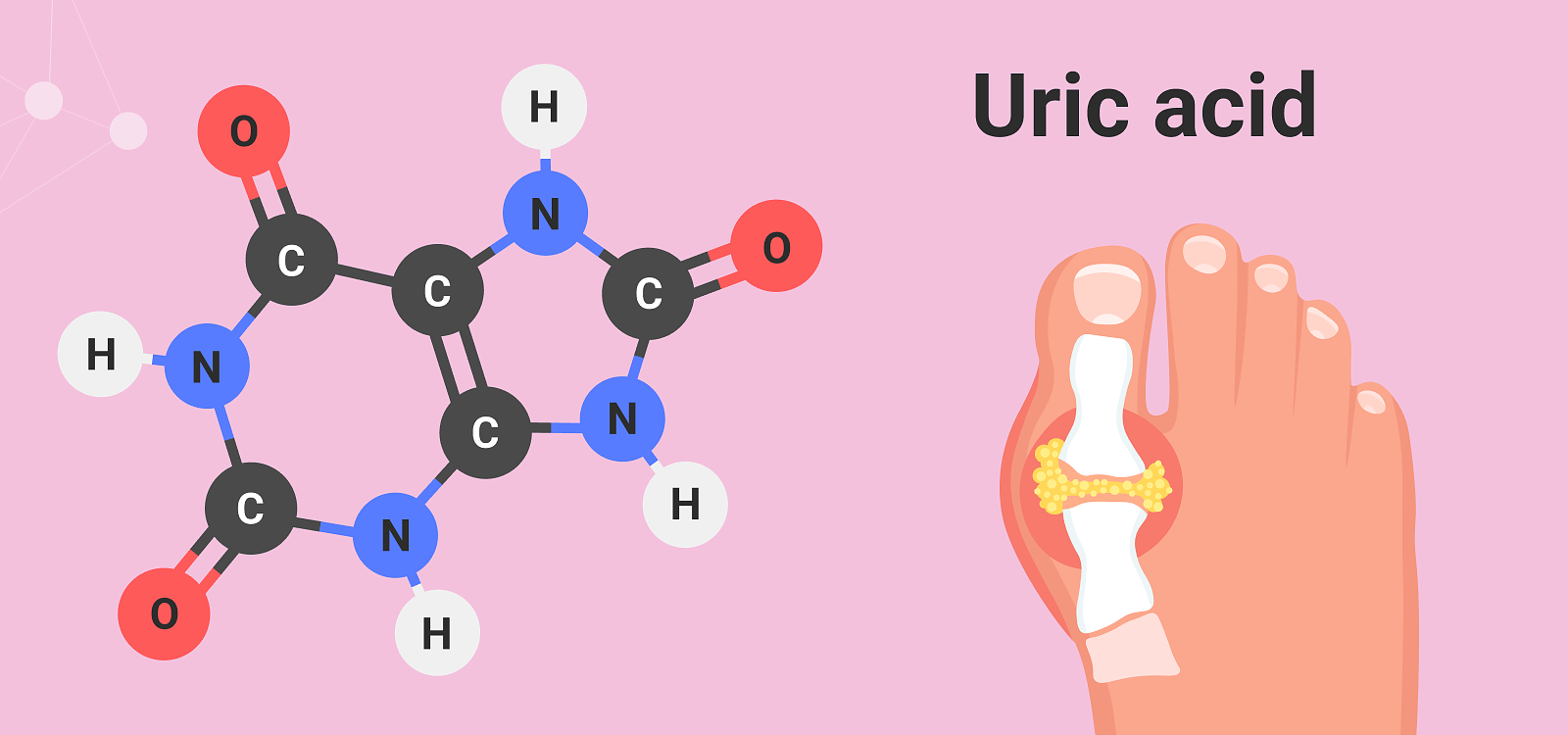Parameter Tuesday: URIC ACID
Uric acid is a product of the breakdown of chemicals called purines. Purines are organic compounds found in the cells in your body and in some foods. Uric acid is a waste product that dissolves in your blood and travels through the kidneys, which filter out the uric acid and ensure that it leaves your body in urine.
There are two types of purines, endogenous and exogenous. Endogenous purines are purines made in your body and are present in your cells, while exogenous purines are those that are absorbed by the body from the foods that you eat. Foods that contain high amounts of purines are any alcoholic beverage, with beer having especially high levels, seafood, sweetened beverages, and organ meats like liver. Eating too many foods with high purine levels can cause uric acid to accumulate in your body. If the uric acid stays in your body for too long, it starts forming crystals, which can cause numerous problems.
High uric acid levels in your body or so-called hyperuricemia is usually associated with gout. It's a form of arthritis where the uric acid crystals build up in your joints and cause pain and swelling. The crystals can also accumulate in the kidneys and form kidney stones. Hyperuricemia can be caused by cancer - like multiple myeloma or leukemia - and cancer treatment - like chemotherapy or radiation therapy. Both cancer and its treatment cause cells to die and uric acid to build up. As already mentioned, your kidneys filter the uric acid out of your blood. Therefore, high uric acid levels can also be caused by kidney disease.
Low uric acid levels are pretty uncommon and usually not something to be concerned about. However, low uric acid levels are connected to lead poisoning, kidney problems, or heavy alcohol use.


